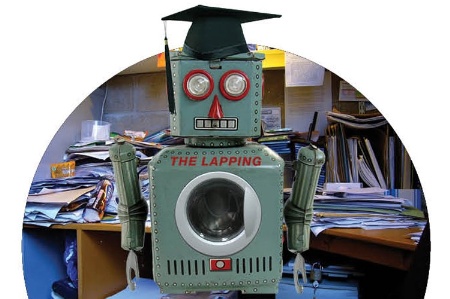Following the news that an English lecturer from the University of Nottingham has apologised for describing a third-year student as an “idiot” and “semi-literate” on Facebook, our Deputy Head of Student Experience, Nancy Harbinger, has issued new guidelines to circumvent the possibility of any such academic imprudence within our own university.
In a top priority memorandum emailed to all academic staff, Ms Harbinger recognises what she calls “the traditional right of academics to use evaluative terms to characterise individual students”. She also acknowledges that “where pedagogic circumstances provide the justification”, it may be appropriate to make use of such pejorative terms as “idiotic’’, “semi-literate” and “even such vernacular characterisations as ‘two sandwiches short of a picnic’ ”.
However, she insists that these and similar terms should never be posted on social media sites but should be confined to whispered asides in “such traditional arenas for student abuse as senior common rooms”.
More public comments about idiotic or semi-literate students should rely on the well-established alternative formulations: “Only just satisfactory”, “Recurrently marginal” or “May well have to settle for a lower”.
Will it fit in my seminar room?

Our Corporate Director of Human Resources, Louise Bimpson, has responded vigorously to the recent contention in Times Higher Education by Martin McQuillan, dean of arts and social sciences at Kingston University, that the proposed involvement of the Consumers’ Association in university assessment would give a totally wrong impression of the nature of higher education.
Although Ms Bimpson agreed that the concept of “best buy” could be misleading when it was used to distinguish between different universities, she believed that the concept had “discriminating power” when applied to individual members of academic staff. In this respect, she listed a recent Which?-style evaluation of Professor Gordon Lapping, of our Department of Media and Cultural Studies:
The Lapping
Will it fit in your seminar room?
The Lapping has slimmed down a great deal since the last pay rise and will now slide easily behind a standard size desk and still leave enough space in the room to accommodate up to 24 students.
How noisy is it?
The Lapping starts with a loud whirring engaged sound, but this soon reduces to a barely audible whimper as the cycle progresses.
How much energy does it use in a typical cycle?
The Lapping will run for approximately 45 minutes on three cups of coffee, a muesli bar and four Nurofen.
Does it remove all known stains?
The Lapping removes some faulty generalisations and one or two undistributed middles, but can also leave large unsightly patches of ignorance.
Is the Lapping free-standing?
Earlier models could stand entirely on their own, but the latest model needs to sit down a lot in the afternoon.
Does it remove all odours?
At the end of each cycle, there is a discernible whiff of ennui.
Thought for the week
(contributed by Jennifer Doubleday, Head of Personal Development)
In next week’s Thursday seminar, Professor G. K. Diploid, who was recently a member of the team that identified the genetic basis of homosexuality, will describe his team’s latest discovery of the genetic basis for a tendency to propagate higher forms of nonsense.

